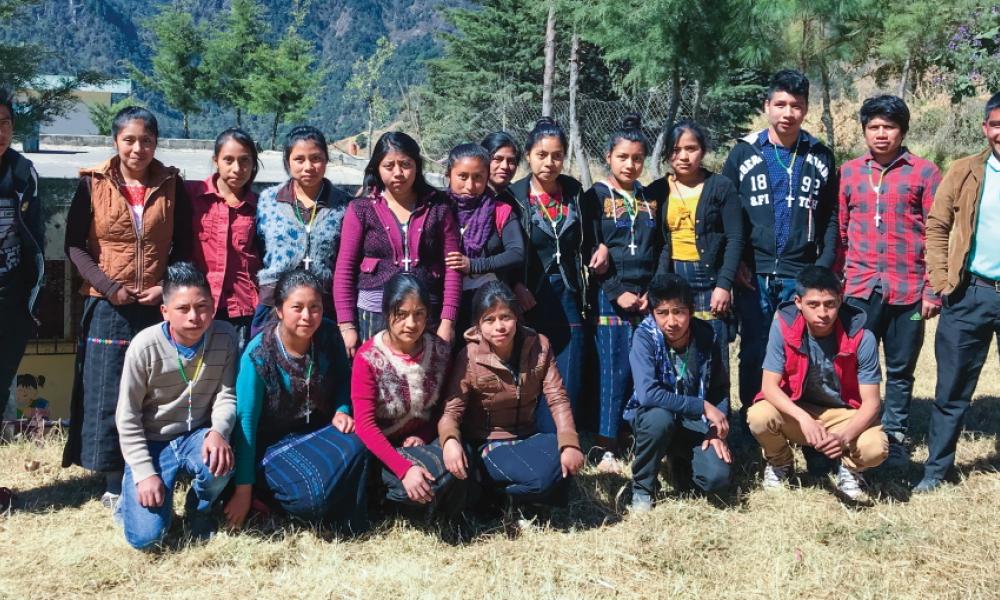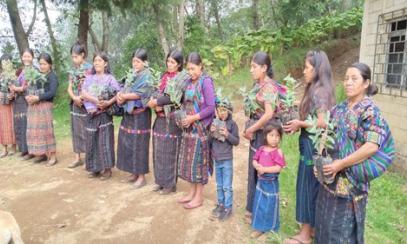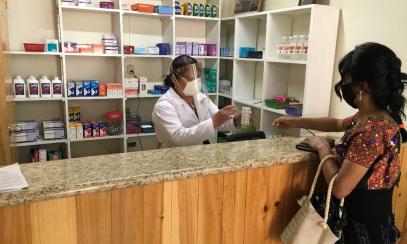
Spokane Parishioners Provide Remarkable Help
If you are a member of a local parish, chances are you have already been of significant help to the poor in Guatemala, whether you realize it or not! For nearly 60 years, the Diocese of Spokane has assisted the impoverished Mayan people of Central America. Indigenous people were “relocated” to the highlands (7,000-11,000 foot elevation) by the Spaniards in the 15th century. They lived in cold, precarious, dirt-covered huts, and children had a 50 percent mortality rate before the age of 5.
Fortunately, Spokane's wide-ranging aid has had a remarkably compounding impact on the lives of the indigenous people. Religious activities, combined with health and education programs, have brought purpose and positive direction to the struggling people. Schools, churches, training centers, and houses (with cement floors) have been constructed, and jobs have been created.
Who has accomplished this? The parishioners of Spokane. The widespread participation of parishes in this effort is a remarkable testament to our faith. Since the founding of the mission by Bishop Bernard Topel in 1960, the majority of parishes in our diocese have responded with steady, long-standing support. This "Sister Diocese" program has met both emergency and continuing needs.
Educational programs, first initiated in 1962, are supported today by individual donors and 20 parishes, located in Spokane, Spokane Valley, Walla Walla, Deer Park, Colbert, Pasco, Dayton, and Waitsburg.
Strong pastoral and seminarian support (including religious education, youth programs, and training for catechists) comes from many parishes throughout the diocese of Spokane.
In 1962, Fr. John Rompa founded the "Voice of Nahuala" radio station. Today, the station is supported by parishes in Pullman, Walla Walla, and individual donors. The Nahuala radio was instrumental in getting the word out to remote areas of the medical team from Spokane that performed cataract surgeries in the mission in 2004 and 2006.
Medical and clinic support, beginning in 1964, has saved countless lives in Guatemala. Today, help comes from parishes in Spokane, Spokane Valley, Colbert, Pasco, and numerous individual donors. In addition to upgrading the health of the people, medical assistance has been critical following earthquakes (such as in 1976) and hurricanes (Mitch in 1998, which caused 11,000 deaths in Central America, and Stan in 2005).
Since 1984, the Spokane diocese has also made a significant contribution to helping families become more self-sufficient by learning productive skills needed to better support themselves. Over the past 30 years, the Family-To-Family program has provided job training to well over 1,000 families and enhanced the living standards of countless native people in the area.
With appreciation of help in the past, we now look forward to continued support to meet the challenges of the future. For more information about programs and contributing parishes, please visit the website: www.dioceseofspokane.org/diocese-of-solola



